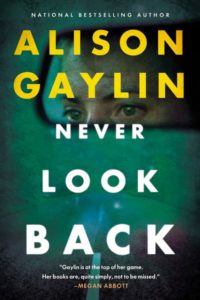I was driving home from work very late one night in 2014, fiddling with the radio and struggling to stay awake, when I managed to catch a rebroadcast of This American Life. The story being discussed—about a young Baltimore man imprisoned for the murder of his girlfriend—was not one I was familiar with. But as a longtime fan of both true crime and This American Life, I decided to give it a listen.
It was a wise decision. By the time I was five minutes into the broadcast, falling asleep at the wheel was no longer a looming threat. I was wide awake and hooked; another ten minutes in and I was hopelessly addicted.
At the end of the 45 minutes, when I was still catching my breath (A witness saw Syed in the library at the time of his girlfriend’s murder? What? Seriously?!) I learned that the story was not a one-off, but the first episode of a new podcast called Serial. I was all-in, along with millions of other listeners. And the true crime podcast craze was born.
***
It wasn’t the first time, of course, that a real-life murder story had captivated non-print audiences. From In Cold Blood’s cinematic incarnation to the hit mini-series based on Helter Skelter and The Executioners’ Song to the lurid docs on 48 Hours and the ID channel, true crime stories have proven fascinating when brought to life on screen. But Serial was different. Downloaded 5 million times within a month of its first episode, the podcast broke iTunes records, spawned countless water cooler conversations (not to mention Twitter trending topics and Reddit threads) and launched a whole new form of true crime storytelling that has garnered countless devotees—myself included.
After devouring Serial, I quickly moved on to the many other true crime podcasts that cropped up in its wake. Dirty John, Happy Face, You Must Remember This: Charles Manson’s Hollywood are just a few of the chilling, satisfying stories that have kept me up at night. And S*Town, a deeply moving, real-life mystery that unfolds in real time and truly changes the life of its host, Brian Reed, continues to haunt me to this day.
Others clearly feel the same. According to Variety, S*Town—which came out three years after Serial, in 2017—garnered 10 million downloads within four days of its release. And the popularity and range of true crime podcasts—from limited-run documentaries to ongoing series like My Favorite Murder—continues to grow.
Why are these binge-listens so irresistible? While there have already been volumes written about our attraction to true crime and how it safely fulfills our hidden desire to see evil up-close, there’s something about having the story told to you that, for me at least, takes that intimacy one step further. While the screen can be a barrier, headphones invite. Instead of spelling everything out with moving images, podcasts force you to use your imagination, the hosts drawing you into their stories as though you’re sitting around a campfire.
The format, too, is addictive. Most of the great true crime podcasts dole out the information in juicy, 30-45-minute installments that are often structured like novels I wish I’d written (I’m looking at you, Dirty John) and build to shocking, satisfying conclusions.
Perhaps most importantly, though, there’s the emotion of it all. Unlike so many journalists and authors, who make it a point to remain objective and invisible when covering real-life situations, podcast hosts don’t hide their feelings. Whether they’re piecing together a defense for a prisoner they clearly empathize with (a la Serial’s Sarah Koenig) or, as in the case of Happy Face’s Melissa Moore, discovering more and more about a murderous relative, true crime podcast hosts invariably have some skin in the game—and that enables the listener to become emotionally involved as well.
For me, listening to a true crime podcast is like having a close friend tell you about an important news story, as opposed to reading about it. The facts may not be as accurate, and the story may not be organized in an orderly way. Yet there’s an excitement there—a passion for the facts as the narrator knows them—that makes you want to hang on her every word.
Perhaps that’s why I’ve chosen to make a true crime podcaster one of the protagonists in my latest book, Never Look Back. A reporter driven by emotions, Quentin Garrison is, like so many of my favorite podcast hosts, part investigator, part unreliable narrator… and the close friend you really want to believe.
***
For a fictional first episode of Quentin’s podcast, Closure, scripted by Alison Gaylin, click here.


















